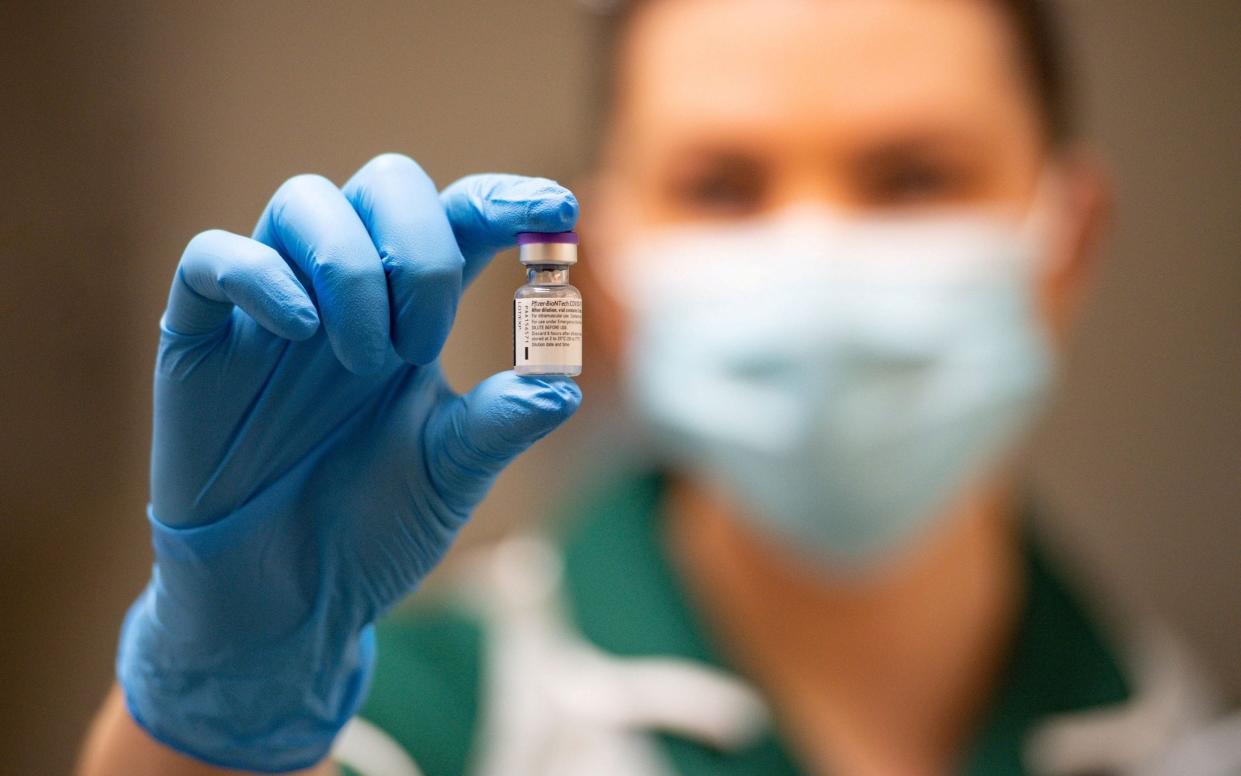Longer wait for second Pfizer vaccine dose ‘gives more robust protection from Covid’

People who wait longer to get the second dose of their Pfizer vaccine mount a more robust immune response for long-term protection from Covid than those who bring their second jab forward, a major study has found.
The second dose of a Covid jab can be administered at any point three weeks after the first, and the Government now aims to get all second jabs within eight weeks of the first.
A study funded by the Department of Health and led by the University of Oxford has found a longer interval leads not only to more antibodies but also more T helper cells. Both are a product of the immune system but work in different ways and have opposing roles.
Antibodies are the frontline soldiers, proteins which latch on to the virus and stop it infecting human cells. T helper cells are key to the functioning of the immune system memory and protecting people against pathogens in the long term.
In the study, researchers examined changes to the immune response in people with a short interval – 24 days – between jabs compared to a long interval of 70 days.
The results of the study, published on Friday as a pre-print, show antibody levels were twice as high after the longer dosing interval, with those people also having a higher proportion of T helper cells.
The researchers emphasised that the immune response was strong and robust in both cohorts, but said the longer interval may lead to better long-term protection.
All the 503 healthcare workers in the study will be examined over the next year to see how their dosing regimen affects their protection against Covid.
Nadhim Zahawi, the vaccines minister, called the findings "hugely significant" and said: "As we raced to offer a vaccine to all adults, we took the Joint Committee on Vaccination and Immunisation's advice to shorten the dosing interval from 12 to eight weeks to help protect more people against the delta variant.
"This latest study provides further evidence that this interval results in a strong immune response and supports our decision. I urge every adult to get both doses of the vaccine to protect yourself and those around you, and we are looking to offer millions of the most vulnerable a booster jab from September to ensure this protection is maintained."
Prof Susanna Dunachie, the lead author of the study, from the University of Oxford, said: "Our study aimed to shine a light on the different types of immune cells involved [in the immune response] to help us better understand the potential mechanisms of protection, particularly against new variants of concern.
"It is clear from our findings that, to maximise your individual protection, it is very important to get two doses of the Covid vaccine when offered. I think that eight weeks is about the sweet spot for me, because people do want to get the two vaccine [doses] and there is a lot of delta out there right now.
"Unfortunately, I can't see this virus disappearing, so you want to balance that against getting the best protection that you can."

